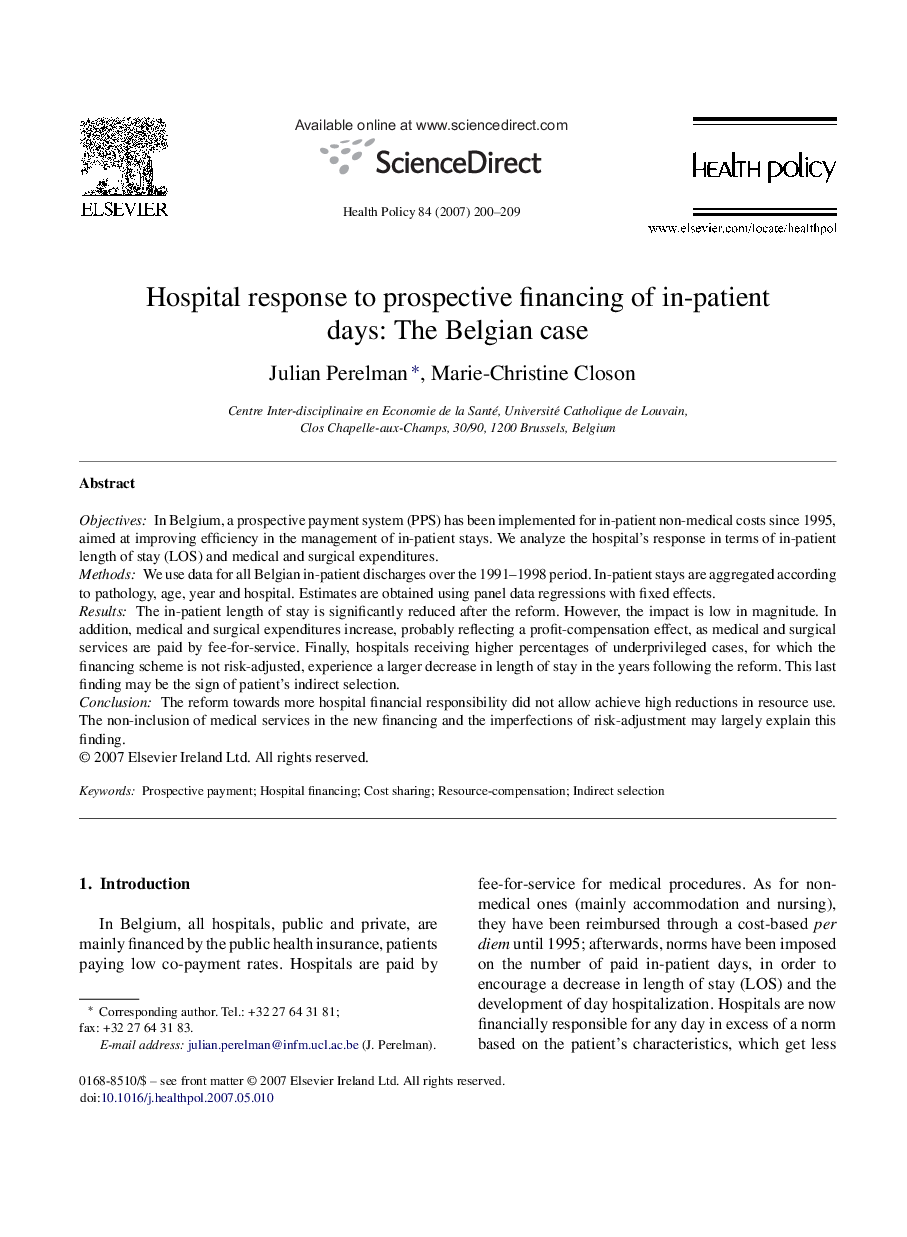| Article ID | Journal | Published Year | Pages | File Type |
|---|---|---|---|---|
| 4198764 | Health Policy | 2007 | 10 Pages |
ObjectivesIn Belgium, a prospective payment system (PPS) has been implemented for in-patient non-medical costs since 1995, aimed at improving efficiency in the management of in-patient stays. We analyze the hospital's response in terms of in-patient length of stay (LOS) and medical and surgical expenditures.MethodsWe use data for all Belgian in-patient discharges over the 1991–1998 period. In-patient stays are aggregated according to pathology, age, year and hospital. Estimates are obtained using panel data regressions with fixed effects.ResultsThe in-patient length of stay is significantly reduced after the reform. However, the impact is low in magnitude. In addition, medical and surgical expenditures increase, probably reflecting a profit-compensation effect, as medical and surgical services are paid by fee-for-service. Finally, hospitals receiving higher percentages of underprivileged cases, for which the financing scheme is not risk-adjusted, experience a larger decrease in length of stay in the years following the reform. This last finding may be the sign of patient's indirect selection.ConclusionThe reform towards more hospital financial responsibility did not allow achieve high reductions in resource use. The non-inclusion of medical services in the new financing and the imperfections of risk-adjustment may largely explain this finding.
